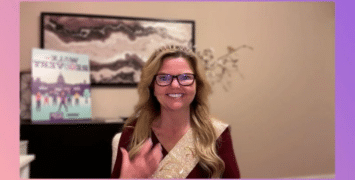Your cart is currently empty!

Monday Thoughts 7.18.22

“Anxiety happens when you think you have to figure out everything all at once. Breathe. You’re strong. You got this. Take it day by day.”
Karen Salmansohn
“Sometimes when you’re overwhelmed by a situation—when you’re in the darkest of darkness—that’s when your priorities are reordered.”
Phoebe Snow
“In any situation, you have the right, power, and ability to choose your experience.”
Iyanla Vanzant
Sobriety and Statement #4 in action foster presence and shifting perspectives while encouraging growth. Before New Life, it was normal to try to evade problems or simply ignore them. This only intensified feelings of anxiety and increased alcohol tenfold. Our founder, Jean Kirkpatrick, Ph.D., states it quite well in our WFS Program booklet when she remarks, “Denial became my biggest problem.”
Active addiction changes the way our brains work, and as we begin to understand our problems with a sober mind, it can feel overwhelming, which is completely normal. One of the ways that Jean practiced Statement #4 was to list her problems first, then go back and prioritize them. Focusing on what needs attention first can help direct our energy and lay a foundation for greater balance.
It is important to remember that NO ONE can solve everything all at once. Solving problems is a bit like eating an elephant; one bite at a time. I find it helpful to break down tasks and start with the most challenging first. If I delay, excuses come to mind, and my apprehension increases. This leads to feeling overwhelmed and an accumulation of the freeze/flight/fight response.
Here are four ways to help move through problems:
1. Identify the issue: Be honest. Is it within your ability to manage? Women can oftentimes take on problems that we do not own. Here, boundaries can be a great help.
2. List and prioritize: Have a daily, weekly, monthly, yearly list. For instance, each year, I schedule a mammogram and have dedicated August for this uncomfortable yet vital test. A daily list might include important phone calls or emails, again, doing the most uncomfortable first. For larger issues such as creating or improving a credit score, a timeframe is helpful which can lessen anxiety.
3. Try your options: Maybe there are multiple options for a specific issue, but it can be easy to feel paralyzed with choices. Try something. If you do not succeed the first time, you will have learned what doesn’t work and you tried. Accept success and failure as a part of life’s journey and keep going.
4. Reflect on how far you have come: We have solved many problems already. You learned to walk, tie shoes, and tell time. Same with sobriety and recovery, while you may have many firsts happening, you are also cementing new ways to face challenges. Acknowledge how hard you have worked and embrace gratitude. You are a 4C woman!
Hugzzz
Karen
Hi 4C Women,
I am so grateful that Karen pointed out how difficult it is in early sobriety to handle authentic issues and problems. I was a worrier so rather than work on solving problems, I kept wringing my hands and solved nothing. In a way, that worked for me. To go deeper and be responsible for my decisions was pretty scary. I had no confidence in my ability to make decisions which started in my teenage years. In reflection, I realized that even as I grew older, I clung to the negative comments made to me and ignored the encouraging ones. It was as though it was my job to validate the negative. I no longer do that!
I have learned to accept the fear of making decisions, learn from my mistakes and enjoy my successes all while building my confidence in problem-solving. In my first year, this was probably one of the most challenging Statements to practice as I wanted to run, numb, and hide from problems. I knew I needed to build my confidence and the only way to do that was just that – do it! I was a bit anxious yet using the techniques Karen shared, was so helpful. After all, if the creator/ founder of WFS could find a way on her own to work through problems and share it with all of us, who was I not to give it a try. Since my divorce 28 years ago, I have made MAJOR decisions that changed the course of my life. Decisions that I never would have made if I didn’t have a clear mind, a fabulous recovery program as a guide, and taking the time and willingness to grow my confidence.
Here are some questions that might be helpful in your decision-making:
What are the consequences of NOT changing this situation or behavior?
What do I feel I have at stake in this situation?
What am I willing to let go of?
What benefit am I getting out of keeping things the same way?
Do I need to review the boundaries I have set and whether or not I am adhering to them?
Have I reached out to my support system for input, comfort, and understanding?
Do I care more than the other person in this situation? If I do, why?
That last question was a light bulb moment for me. I was working so hard at trying to support this person and realized that I cared more, put in more time and energy and nothing was changing except I felt unappreciated and then resentful. Those are my triggers. So back to boundary setting and following through.
Bonded in building problem-solving, and decision-making confidence, Dee




